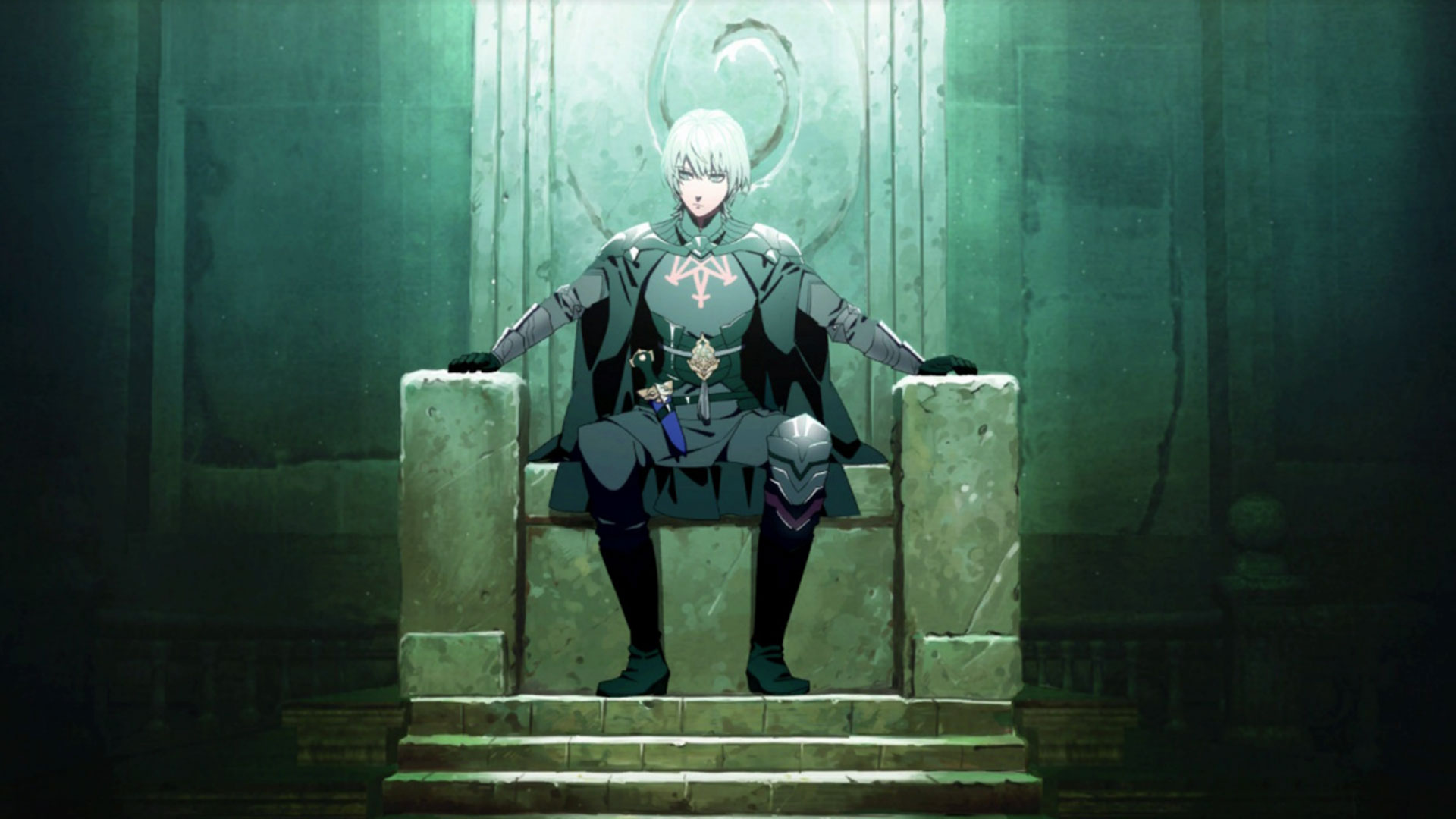GamesRadar+ Verdict
Fire Emblem: Three Houses fully realizes a new, meaningful direction for the franchise that makes it the best it has ever been.
Pros
- +
An epic story
- +
Addicting Persona-like team building mechanics
- +
Deeper strategic mechanics
- +
A huge cast of characters with tough, meaningful choices
Cons
- -
Somewhat too easy
- -
Combat visuals look poor
Why you can trust GamesRadar+
Matthew jumped to the left, easily dodging the handaxe a bandit had thrown his way from across the bridge. Moments later he used his iron sword in two quick strokes to end the brutes life, making sure the nearby village would have another night of safety. But the battle wasn't over yet, at least a half dozen other men stood on the other side of the valley.
Approaching one of them, a skilled swordsman by the look of his garb and weapons, Matthew had a familiar thought. A thought of desperation and hunger. The swordsman was named Guy, and Matthew had saved him from death years ago. He must have joined the group of outlaws out of hopelessness. Matthew sheathed his sword and approach Guy with vulnerability, using his words instead of his metal. At that moment, Guy recognized Matthew, dropped his sword, and joined him, pledging his life to help the man that saved his life so long ago.
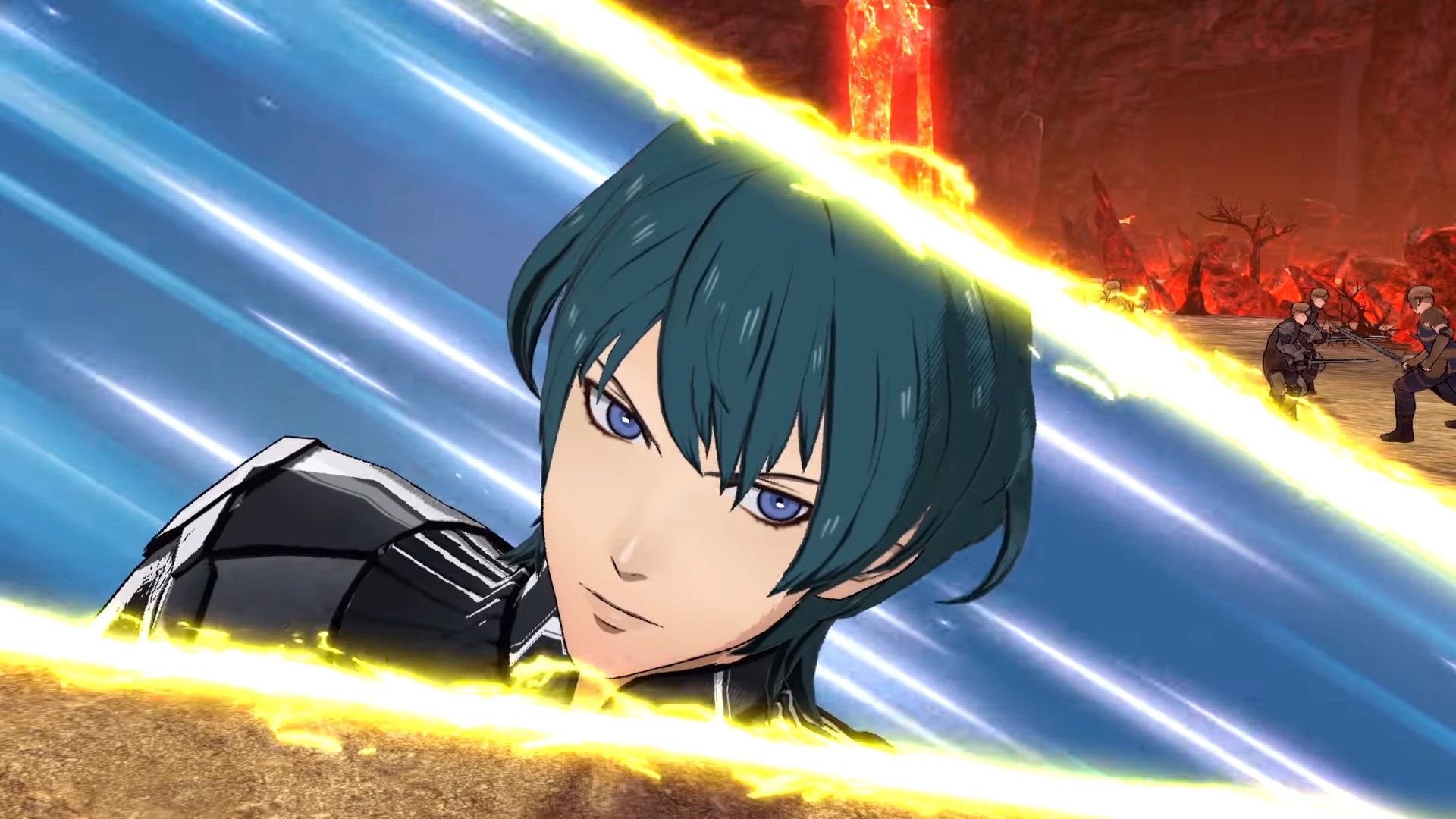
Release date: July 26, 2019
Platform(s): Nintendo Switch
Publisher: Nintendo
Developer: Intelligent Systems
This story from Fire Emblem: The Blazing Blade, the first game in the series developed by Intelligent Systems and published by Nintendo, is what the franchise is all about. Human tales of loss and redemption are hidden in the grit of beautifully designed grid-based combat have made Fire Emblem: Three Houses different from other games with similar mechanics. Every character, even the weakest farm boys who would go on to be powerful knights, feels important with their own backstory, relationships, and specialties. Losing a soldier was never an option.
Fire Emblem: Three Houses takes this idea and puts it center stage, realizing a direction the series has been taking in a way that has never been done before. It prioritizes stories like these over combat – a poor girl living in poverty turned songstress or a shut-in archer with a childhood of abuse – with a Persona-like relationship simulator that tasks you with learning likes, dislikes, histories, and ambitions in order to build an army you care about. The tight, challenging turned-based combat is still there, it's just not all that Fire Emblem is anymore.
An epic evolution
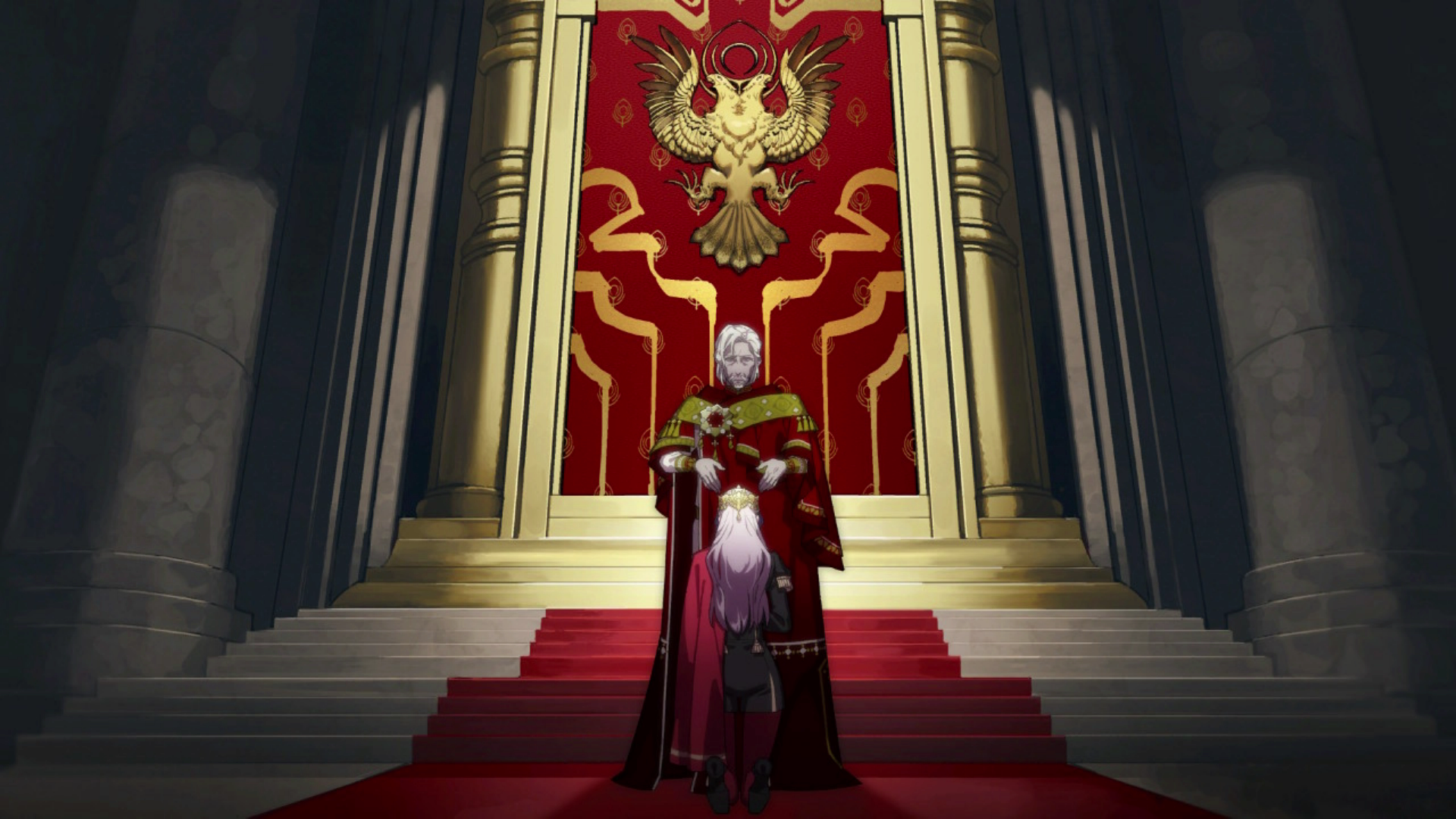
As the series has evolved over the years, the focus has increasingly moved towards the character-focused elements of each game. If you're a fan of the series then you're familiar with the infamous face rubbing and emphasis on waifus, but Three Houses has ditched that, instead focusing on stories behind each character. While you'll still share tea (and "observe" characters to increase relationship points) the story feels serious. I was attached to the plot all the way through, although I wish the player character had an actual personality and not act as a surrogate for whoever is holding the controller.
I will admit that I was hesitant about the Hogwarts-esque setting of the game, I didn't understand how a group of students would fit on the battlefield or how being a professor would work in the tactical world of Fire Emblem. But each in-game week was more action-packed than the last. The school setting, which is used to learn about each character, figure out who you want to recruit, and teach your units' skills (they level up skills like lance wielding, horseback riding, and leadership through the Persona side of things) to help them grow stronger. I became deeply invested in building a team of close-knit killers.
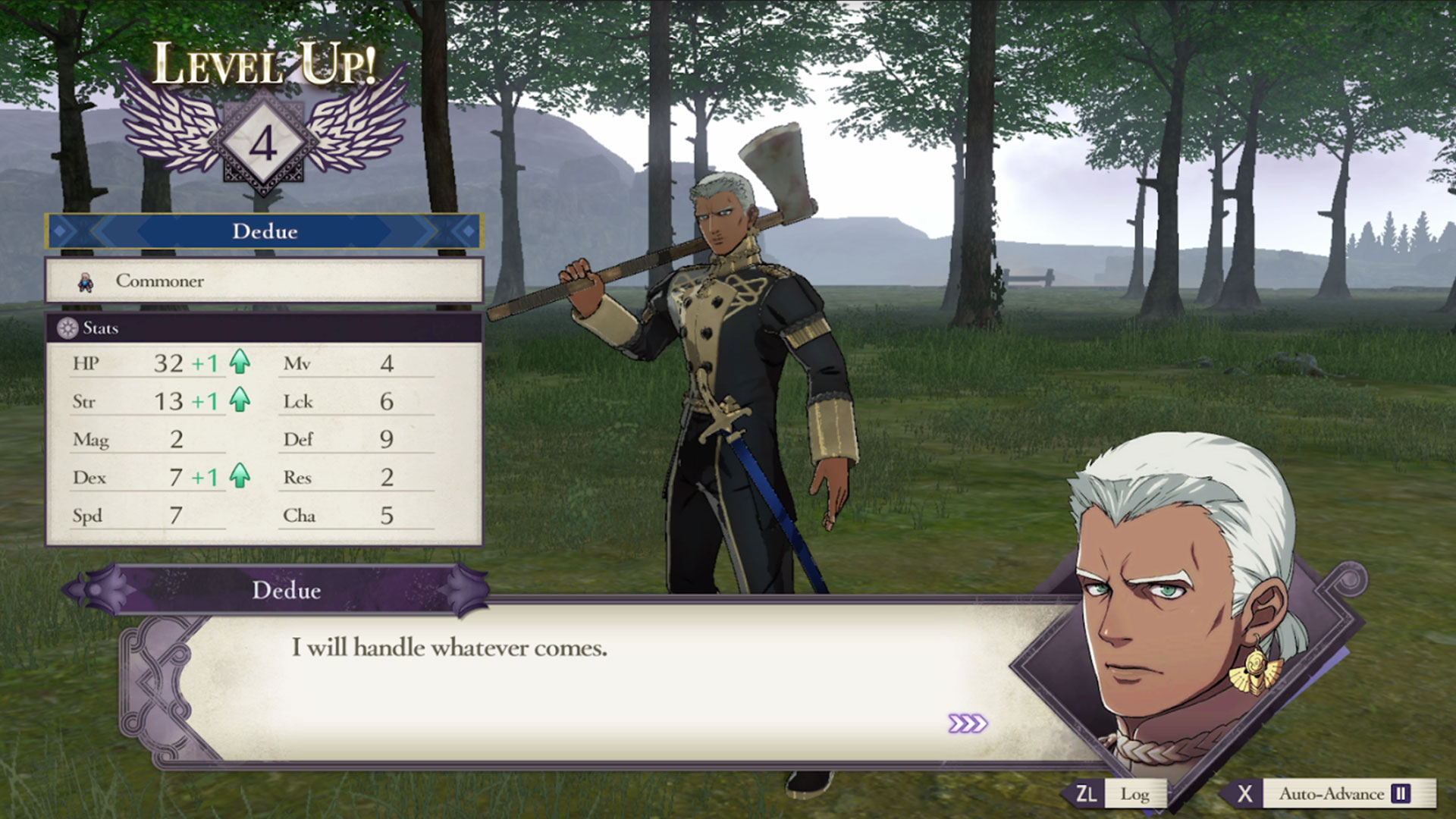
After a short prologue, I chose the Black Eagle House (although I played through again as The Golden Deer), gained a number of students and jumped into the core experience of Three Houses. The entire game is broken into weekly segments where I instructed students by giving them two specialties (lance and bow for example) and then used my weekend free time to talk to students and other characters, build relationships, complete different quests (fishing, plant harvesting, fetch quests, etc) to gain trust, renown, experience, and money.
Weekly digests, tales from the communities you love, and more
You're not pigeon-holed here though, as you don't have to participate in these Persona sections if you don't want to. Instead, there are side quest battles, auxiliary battles, seminars where other professors taught my students special info, or just skip things altogether to get to the next mission. Even halfway through the game, once the story took a five-year time jump, these elements all remained enjoyable alongside fresh models and art for each character, changes to Garreg Mach Monastery's appearance, and old-students-turned-enemies.
Everything in Three Houses is an element in Intelligent Systems' grand war plan. It all fits together perfectly to wipe out most faults the game has to create a masterclass in emotionally gripping tactics.
Tremendous tactical warfare
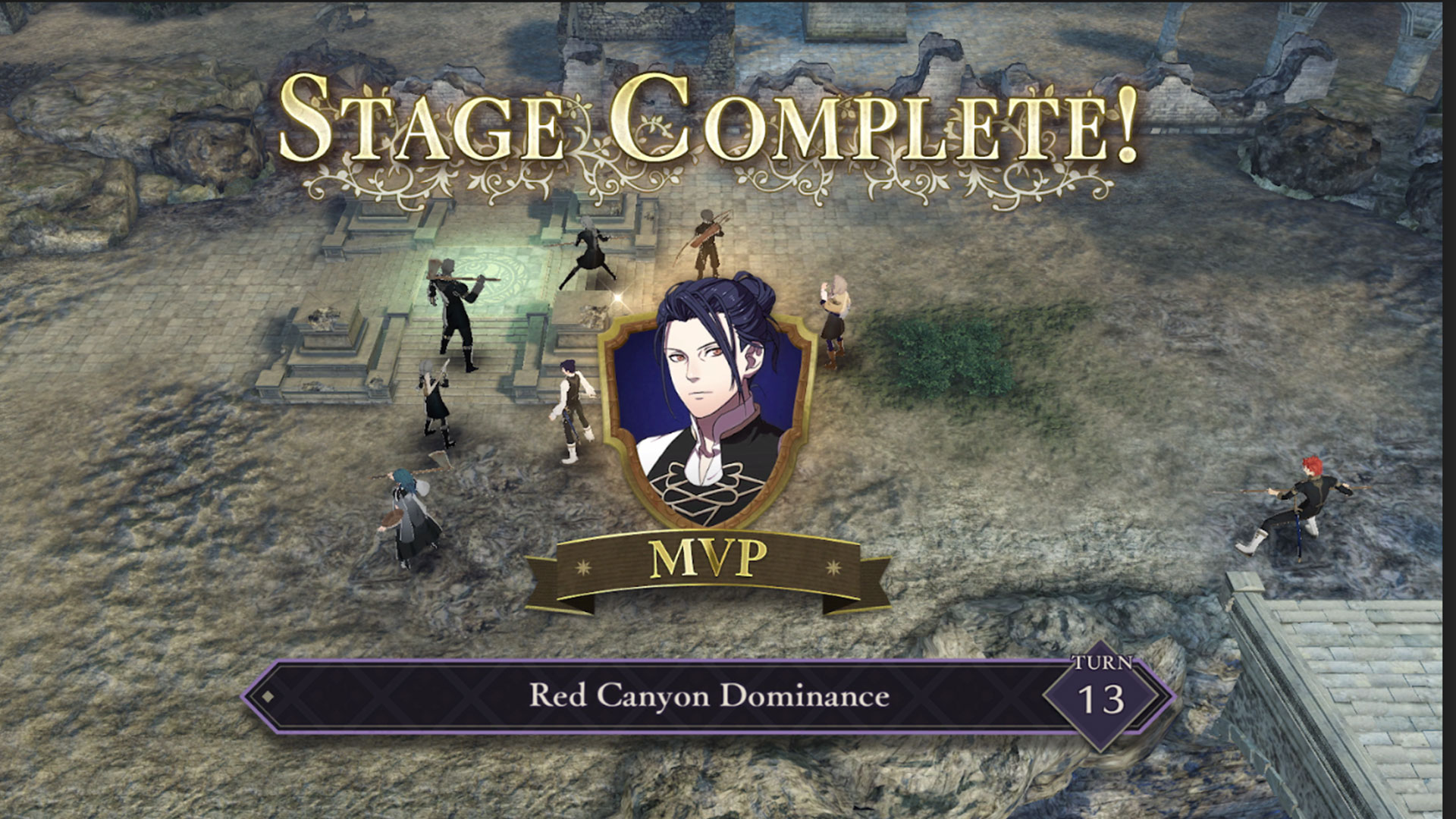
Grid-based combat is back in full force with a fair amount of more depth than previous entries. New mechanics like combat arts (special powers like the ability for an archer to shoot five spaces away), battalions and their gambits (troops with unique abilities you can assign to each character) make battles more complicated and visually satisfying while remaining accessible.
Everything that we love about turn-based battles in still present in Fire Emblem: Three Houses too. There is still a wide range of classes with your expected healers, paladins, archers as well as a variety of map layouts. The big standout change is the addition of demonic beasts. These are new enemy creatures that take up several squares on the map, have multiple health bars and protective shields that need to be broken. They usually require a coordinated approach and can mix things up during a fight.
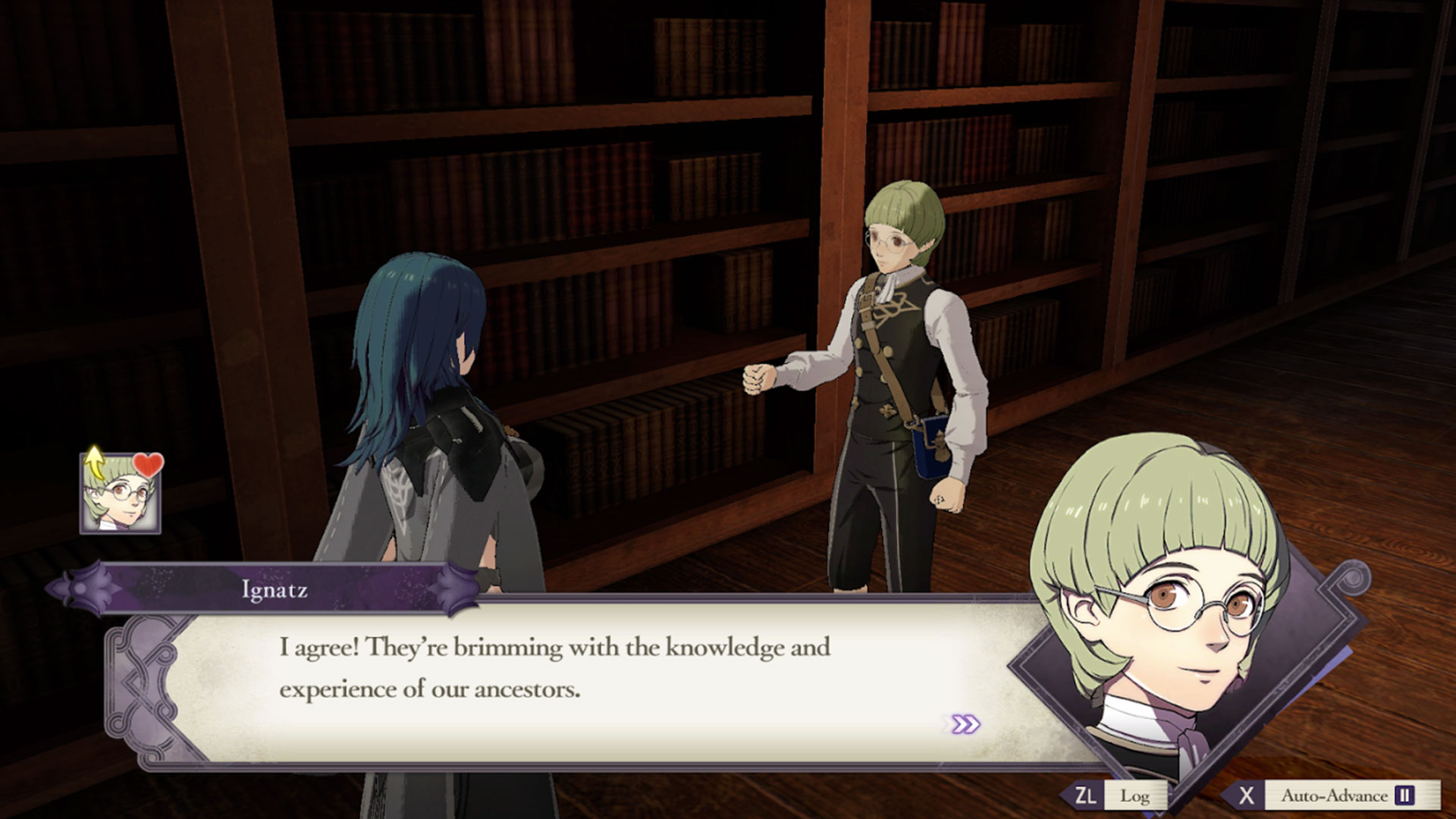
My biggest issue when playing through the combat in Three Houses is the difficulty, I played through it on both difficulties available at the beginning with little resistance from the CPU controlled enemies. On several occasions, my player character Davos, my paladin Ferdinand, and my warrior Caspar could go through battle after battle taking no damage when struck by an enemy. It's in part to how quickly you can level your characters up with teaching and through the grindy nature of side missions that really aren't challenging on their own. I'm not worried about this as much since Three Houses will be getting a lunatic difficulty setting in a free update after launch.
Regardless, this didn't really affect my enjoyment of Fire Emblem: Three Houses too much. I assume if you're a veteran of the series you'll probably blow through it with little trouble, outside the occasional mission where I got a little too bold and got someone killed. Thankfully, Fire Emblem: Three Houses' rewind feature lets me back up to before the moment they died, letting me correct the mistake instead of having to physically restart the game like the good old days. It's a welcome quality of life feature that hardcore players can ignore in favor of a tougher challenge.
After playing through 45 hours of Fire Emblem: Three Houses I'm already prepared to start another file to see how the story differs with the other houses. Even if the main plot doesn't get altered much, the individual stories behind each character are gripping. I've always cared about my squad while playing Fire Emblem, but Three Houses made that sense of care a passion.
Fire Emblem: Three Houses tips | Fire Emblem: Three houses likes and dislikes | Fire Emblem: Three Houses lost items | Fire Emblem: Three Houses tea party guide | Fire Emblem: Three Houses New Game Plus | Fire Emblem: Three Houses romance guide | Fire Emblem: Three Heroes class guide
Aron Garst is a journalist and writer exploring the future of games and interactivity. Follow him on X at @GarstProduction.
